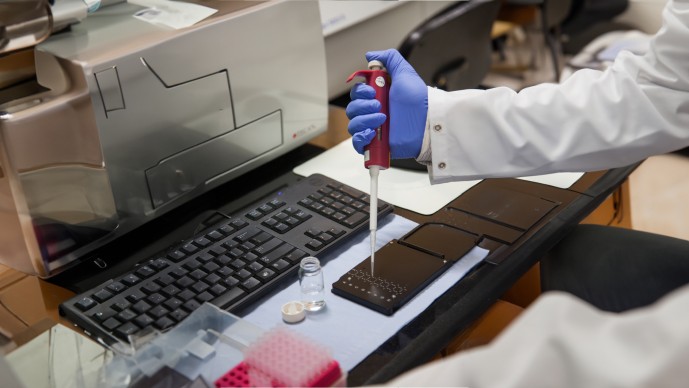African Pathogen Genomics Initiative

Pathogen genomics has been an important element of public health decision-making across the Global North for 15 years. Understanding precisely what is circulating, and where, enables decision-makers to intervene as effectively as possible, using the optimal combination of tools at their disposal. Pathogen sequences can also be used to develop new tools, including diagnostics, monoclonal antibodies, and mRNA vaccines - and they can inform other product development projects.
However, until the creation of the African Pathogen Genomics Initiative, only seven African countries had the capacity to sequence pathogens locally. As a result, they had to send samples overseas, resulting in long delays that rendered the sequences much less useful for public health purposes.
In 2019, the Gates Foundation, working with a range of African partners and global experts, helped the Africa CDC create the African Pathogen Genomics Initiative to support a continent-wide genomic surveillance network.
The COVID-19 pandemic accelerated timelines dramatically. The original plan was for 20 countries to develop their own sequencing capacity over four years, but the actual number turned out to be 35 countries in just the first year.
As of 2025, 39 countries have the machinery and other equipment, the computing power and software, the reagents and other supplies, and the expertise to do their own sequencing.
Within Africa, genomic epidemiology is now being used to inform the response to disease outbreaks. During the pandemic, for example, South Africa used insights from a genomic analysis to make decisions about which vaccines to deploy. For ongoing outbreaks, including mpox, countries are using pathogen genomics alongside other tools to decide on how best to interrupt disease spread.
Furthermore, researchers are using genomic sequencing to understand more about the strains of Klebsiella that cause disease to inform the development of a vaccine - and to analyze how cholera strains are introduced to Africa from Asia and how they circulate, with the goal of designing better vaccine campaigns.
Genomic epidemiology can play a role in enabling a wide range of global health approaches. For example, our partners are now exploring wastewater surveillance not just for polio but for hepatitis E, measles, and mpox as well. It remains to be seen precisely what kinds of insights we can glean from this work, especially in informally-sewered communities, but the potential for less costly and earlier detection of outbreaks is promising, and we're already seeing early signs of success. Recently, for example, the South African National Institute for Communicable Diseases sequenced a full measles genome from wastewater in an area not known to have a measles cases. The team was also able to trace the spread of the virus from another district, and that information can now be folded into modeling efforts to tailor measles vaccination campaigns.